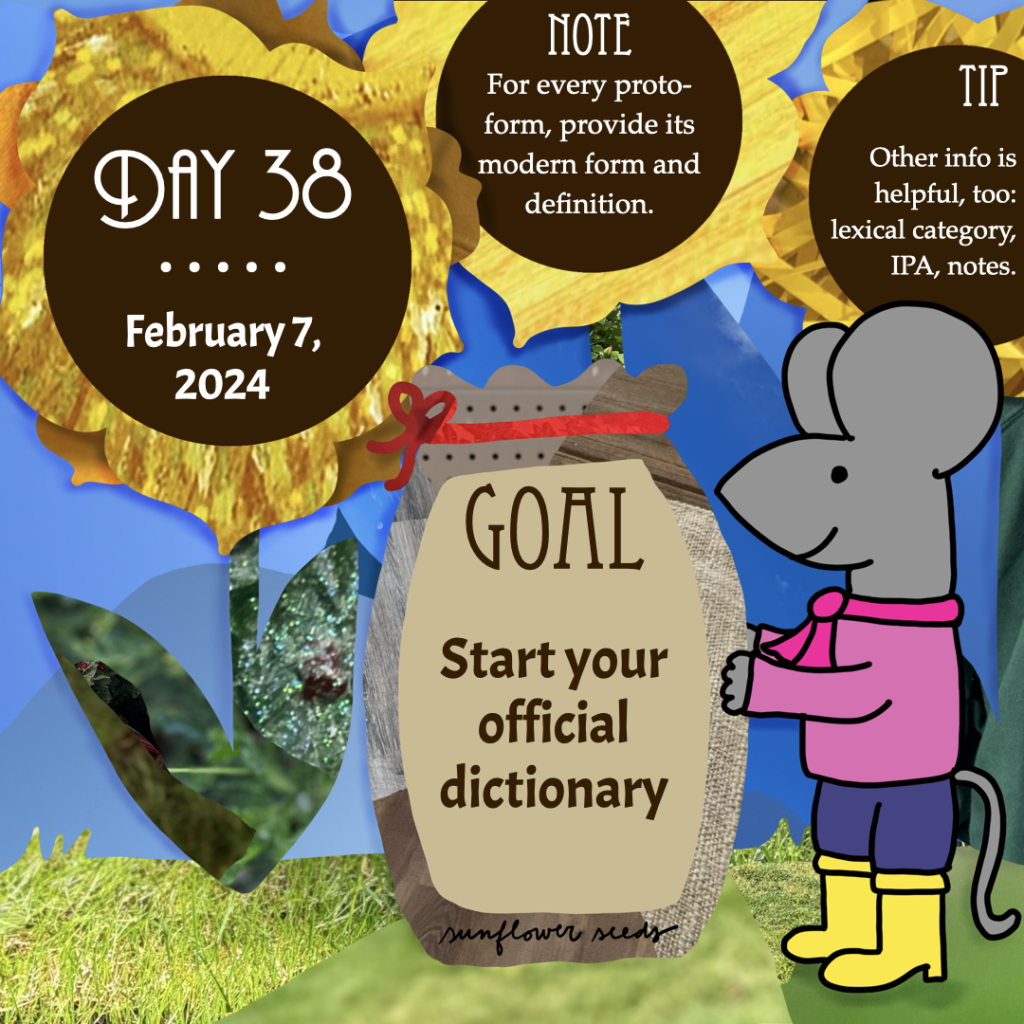
Goal: Start your official dictionary
Note: For every proto-form, provide its modern form and definition.
Tip: Other info is helpful, too: lexical category, IPA, notes.
Work focus: Solidify/Write/Share
You may have already started working on your dictionary. If that’s the case, today is a good day to double check your work and make sure all the proto-forms you created made it into your dictionary and that you have updated the entries to show how the words appear in the modern form of your conlang. If everything is up-to-date, you might use today to create a few new words to expand your dictionary a bit more!
If you haven’t yet started an official document for your dictionary, it’s time to get started. How you keep your dictionary is up to you and what works best for your working style. For some people, they prefer to use a spreadsheet (e.g. Excel, Google Sheets, Numbers) to keep track of their work, which allows them to sort alphabetically by column (which means with a click or two, you can switch from viewing the entries alphabetized by your conlang words to seeing them alphabetized by their English translations).
While that format is helpful in some ways, I find it limits me and my process, so I prefer to keep my dictionaries in a word-processing document (e.g. Word, Google Docs, Pages). One reason I like keeping dictionaries in a document instead of a spreadsheet is that I can include as much (or as little) information in each individual entry as I’d like without having columns to fill or worrying about text wrap within cells. I also find that it is easier for me to perform a search within a document than it is for me to perform one within a spreadsheet (doing a search in a spreadsheet for a particular form is, of course, possible, but it’s often quite clumsy).
Here is a sample of the kind of information you should consider including in your entries, however you choose to document them:
- modha [mo.ˈða] *mautǝ (n.) star
- vlin [ˈvlin] *ǝflin (n.) cloud
The entry includes this information:
modern form [IPA with stress] *proto-form (lexical category) English translation
You can expand the information to include other bits you might find useful to remember later. For instance, I also like to note when a form is inspired by a word or someone’s name (I like to incorporate names of friends and family when I make languages, and I mark those entries with that information so I can easily find them later—and so I remember why I created a particular form).
Whatever format you use for your dictionary, one thing is sure: It will need to be updated and revised often! So make sure you are comfortable with how you’re documenting all these forms, as you will spend a lot of time using the dictionary as you continue working on the language.
